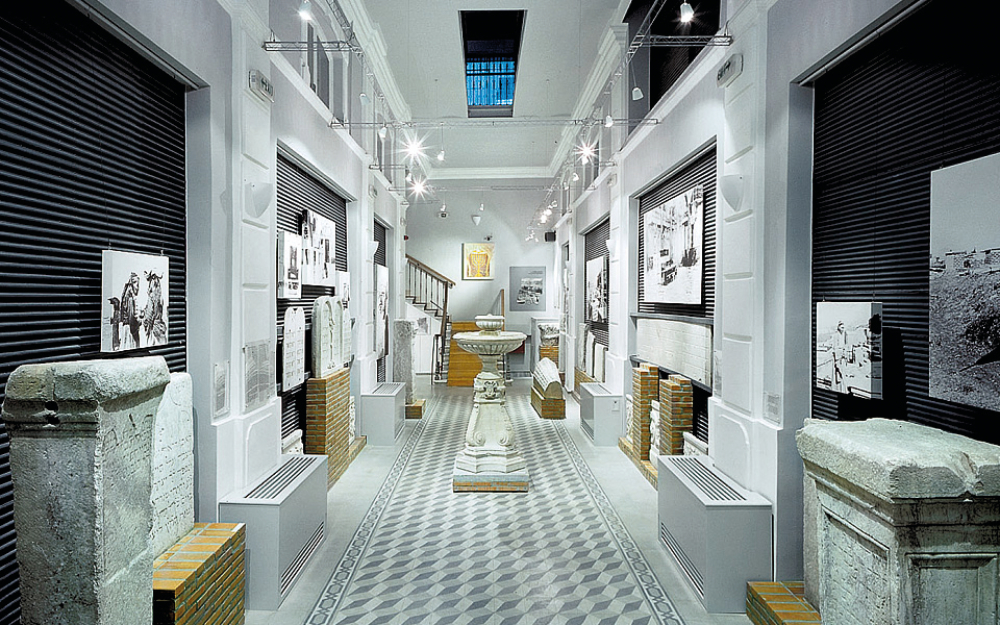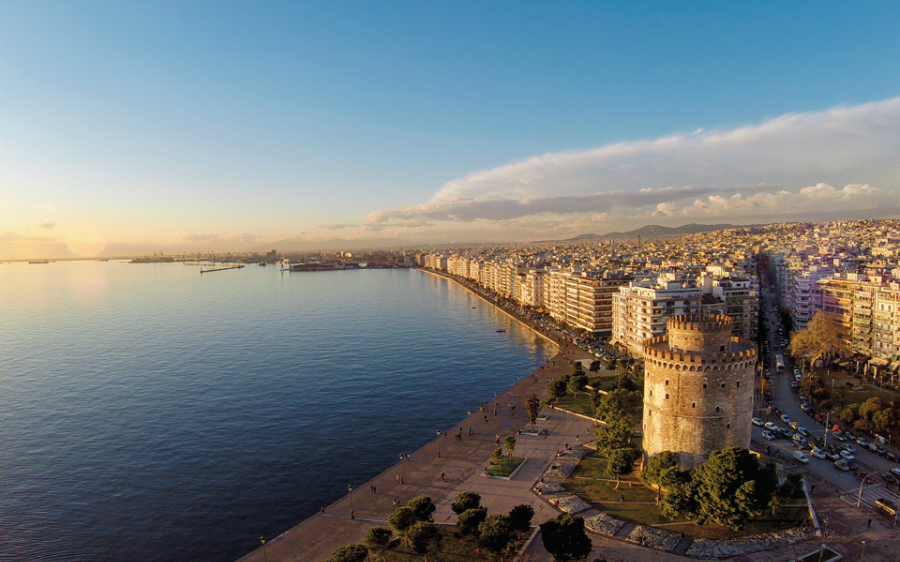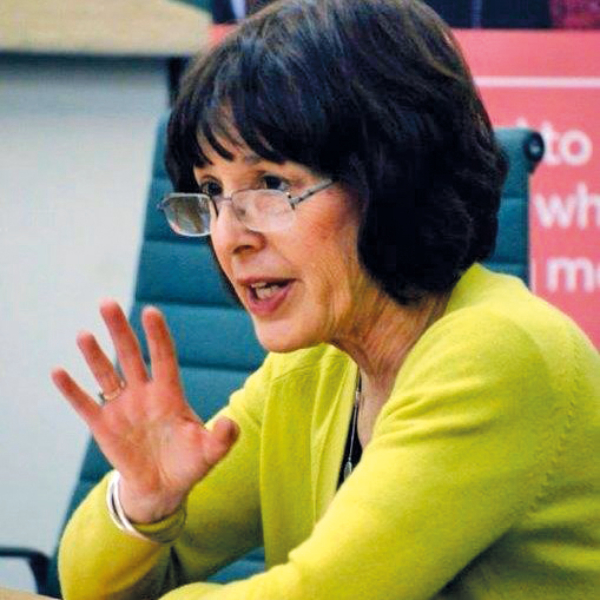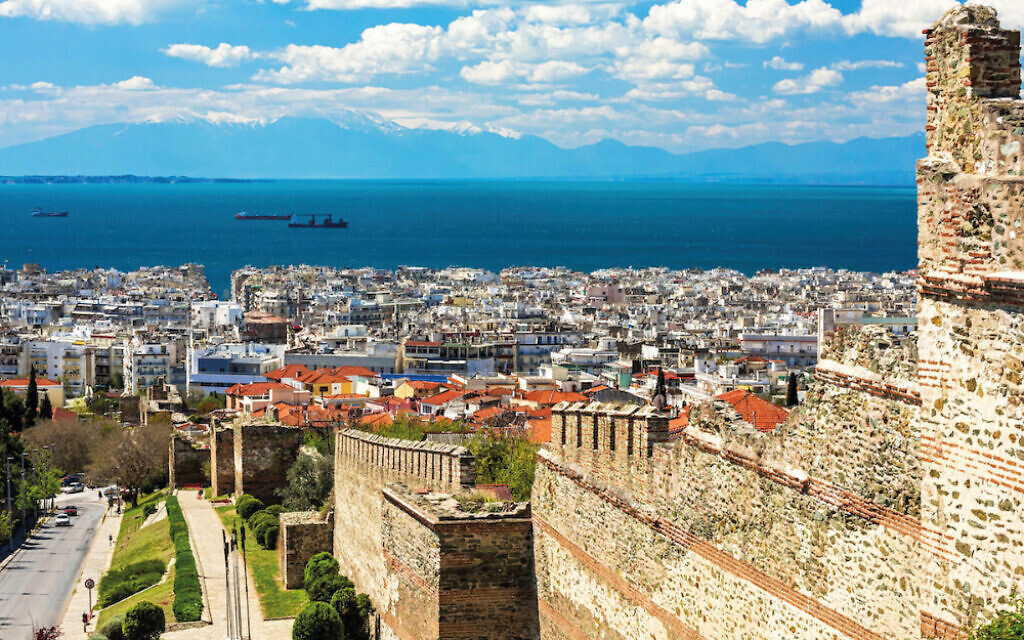Journey to the Greece of my grandparents
Edie Friedman hears stories from some of the 1,000 Jews who still live in Thessaloniki
Statistics can sometimes be overwhelming, with small personal details making a bigger impact. I was reminded of this during my recent visit to Thessaloniki in Greece, for centuries a predominantly Jewish city, whose Jewish population was devastated by the Holocaust.
The number of Greek Jews killed is difficult to comprehend: of the 50,000 living in Thessaloniki before the war, only 2,000 survived. Right across Greece the story is the same, Jewish communities either completely destroyed or reduced to shadows of their former selves. Ioannina, which we also visited, was once home to a 2,000-year-old community of Romaniote (Greek) Jews, but 90 percent were exterminated in death camps and fewer than 50 Jews live there today.
An unusual but very tangible personal reminder of the tragedy of Greek Jewry is a small photographic exhibition in the Jewish Museum of Thessaloniki. The photos depict a series of newlyweds who married in the Monastir Synagogue in 1945-46. This synagogue survived the Nazi onslaught because it was used as a Red Cross centre. Etched on to their faces are both war weariness and unbearable loss but also, I like to think, a little hope that somehow there could be a future for them.
Get The Jewish News Daily Edition by email and never miss our top stories Free Sign Up
Sitting in the Monastir synagogue on Yom Kippur, which was teeming with congregants, I wondered how many of these people were descendants of some of the newlyweds who made up the exhibition.

Today, just over 1,000 Jews still live in Thessaloniki. I talked to the congregants to hear their stories. One woman told me that her Hungarian mother met her Greek Jewish husband in a concentration camp. They fell in love, survived the ordeal and moved to Greece after the war. Another woman told me that her parents survived because they joined the partisans and hid with them in the mountains.
It was to this city so affected by the Holocaust that my husband and I had come to try to find any information about my grandparents, who lived here until they left for America in the autumn of 1919, a century ago.
I only have a copy of my grandmother’s Greek passport and sadly a visit to the main archivist for the Jewish community elicited no new information. Greece is one of the most undocumented countries in the world, in part because a huge fire devastated the city in 1917, particularly affecting the Jewish community.

So, mystery still surrounds my grandparents’ lives here. Why and when did these Russian Jews come to Thessaloniki? Was it to escape pogroms or conscription? Was my grandfather actually born there, as reported in the pre-war US census return? My mother once told me that my grandfather had played the violin in a theatre orchestra but my enquiries to theatres proved fruitless. Were they happy here? If so, why leave for the unknown in the United States? It is chilling to think that if they had not left when they did, my existence would certainly be in doubt.

Before the visit, I felt in my heart of hearts that this trip would be mainly symbolic, knowing that any documents relating to them were unlikely to have survived the combined effect of the Holocaust, the fire and urban regeneration. Even the streets of Thessaloniki don’t look as they did for my grandparents.
I left with that nagging thought – so familiar to many of us – that I could have asked questions years ago but never did. Still, I was pleased that, however imperfect, I was able to enter a little bit of the world they inhabited.
On our way home, the boat taking us from Patras to the Italian coast was delayed because the captain was asked by the Italian coastguard to help a group of migrants in a small dinghy trying to find a new home in the West. Even though 2019 is very different from 1919, people are still impelled to seek a better, safer and more secure life abroad. The horrific death of 39 people in the back of a refrigerated lorry in the UK recently reminded me that we should help them do so safely and legally.

Thank you for helping to make Jewish News the leading source of news and opinion for the UK Jewish community. Today we're asking for your invaluable help to continue putting our community first in everything we do.
For as little as £5 a month you can help sustain the vital work we do in celebrating and standing up for Jewish life in Britain.
Jewish News holds our community together and keeps us connected. Like a synagogue, it’s where people turn to feel part of something bigger. It also proudly shows the rest of Britain the vibrancy and rich culture of modern Jewish life.
You can make a quick and easy one-off or monthly contribution of £5, £10, £20 or any other sum you’re comfortable with.
100% of your donation will help us continue celebrating our community, in all its dynamic diversity...
Engaging
Being a community platform means so much more than producing a newspaper and website. One of our proudest roles is media partnering with our invaluable charities to amplify the outstanding work they do to help us all.
Celebrating
There’s no shortage of oys in the world but Jewish News takes every opportunity to celebrate the joys too, through projects like Night of Heroes, 40 Under 40 and other compelling countdowns that make the community kvell with pride.
Pioneering
In the first collaboration between media outlets from different faiths, Jewish News worked with British Muslim TV and Church Times to produce a list of young activists leading the way on interfaith understanding.
Campaigning
Royal Mail issued a stamp honouring Holocaust hero Sir Nicholas Winton after a Jewish News campaign attracted more than 100,000 backers. Jewish Newsalso produces special editions of the paper highlighting pressing issues including mental health and Holocaust remembrance.
Easy access
In an age when news is readily accessible, Jewish News provides high-quality content free online and offline, removing any financial barriers to connecting people.
Voice of our community to wider society
The Jewish News team regularly appears on TV, radio and on the pages of the national press to comment on stories about the Jewish community. Easy access to the paper on the streets of London also means Jewish News provides an invaluable window into the community for the country at large.
We hope you agree all this is worth preserving.
-
By Brigit Grant
-
By Laurent Vaughan - Senior Associate (Bishop & Sewell Solicitors)
-
By Laurent Vaughan - Senior Associate (Bishop & Sewell Solicitors)
-
By Laurent Vaughan - Senior Associate (Bishop & Sewell Solicitors)
-
By Laurent Vaughan - Senior Associate (Bishop & Sewell Solicitors)






















